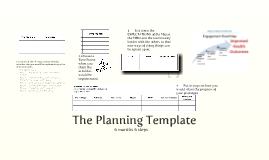Business Planning Presentation
Transcript: FINANCING CORPORATE PREFERRED STOCK COMMON VOTING STOCK THE CLIENTS Alice and Andy THE CLIENTS THE BUSINESS INVESTMENT BREAKDOWN ALICE $250,000 Cash $375,000 Services $625,000 ANDY $250,000 Cash $375,000 Services $625,000 INVESTOR $1,000,000 INVESTOR $1,000,000 INVESTOR $1,000,000 INVESTOR $1,000,000 INVESTOR $1,000,000 INVESTOR $1,000,000 INVESTOR $1,000,000 INVESTOR $1,000,000 INTEREST BREAKDOWN Right to manage the general affairs of the corporation Right to get paid first and right to vote for funda-mental decisions QUESTION Is the use of common stock and preferred stock appropriate for Alice and Andy's corporation when the promoters have greater management rights, but investors have priority rights to payment? STOCK OPTIONS STOCK OPTIONS COMMON STOCK COMMON STOCK Common Stock: ordinary shares representing basic ownership and control rights. Last in priority of distribution of profits and liquidation Stockholders are not necessarily legally entitled to review company documents Arbitrary and constant fluxation of stock value Proportional issuance determines shareholder rights Passive stockholders are protected from any liability resulting from company action Potential for large annual return on investment PREFERRED STOCK Preferred Stock: shares representing specific voting rights in a company and/or securing priority access to the company's financial allocations. PREFERRED STOCK Receives priority in asset/financial distribution Higher and more regular dividends Best for long-term investments, generally low-risk Limited voting rights as described in operating agreement Profits are typically smaller Interest rates for preferred stockholders can fluctuate with the market CAN WE USE IT? APPLICATION TO OUR FACTS As common stockholders, Alice and Andy are undertaking a bigger risk than the outside investors. While they retain voting rights, they will be paid at the very end. Additionally, since they are contributing cash and services/property, they will be paying a capital gains tax on the latter, regardless of how well the business does. As preferred stockholders, the investors receive dividends in a predetermined amount per pay period. Because they want voting rights regarding major decision to the business, this must be spelled out in the operating agreement. More importantly, they will not be on the hook for company losses past their initial investment. Is this arrangement appropriate for the business entity at this stage of formation? TAX CONSIDERATIONS TAX CONSIDERATIONS S-CORP STATUS REQUIREMENTS FOR S-CORP STATUS No more than 100 shareholders Shareholders must be individuals (exceptions apply) USC/LPR shareholders only Only one class of stock + Timeliness/Writing Requirements PROBLEM Because TouchScreen, Inc. issued more than 2 classes of stock (preferred and common), the corporation is therefore ineligible for S-Corp classification. Because Alice and Andy are contributing services in addition to cash, they will be taxed that year, despite the business's success or failure. Additionally, since common shareholders are last in line to be paid, they will also stand to receive little or nothing upon liquidation, merger, etc. Investors, on the other hand, can use their losses as a tax write-off against personal income or taxable dividends. As holders of preferred stock, investors will only be liable for their initial contribution ($1 M each). TOUCHSCREEN, INC. GOES BANKRUPT. WHAT HAPPENS? TOUCHSCREEN, INC. DOES REALLY WELL AND MAKES $15 M THEIR FIRST YEAR. $15 M Applying 21% tax rate for corporations = $11.85 M Assume for simplicity's sake that the investors agreed to receive interest on their $1 M investments as dividends, as long as their initial principal of $1 M was met before anything else. This would leave about $3.85 M to distribute as dividends. $8 M $3.85 M Any dividends received by preferred shareholders (as an appreciation of their stock's value) will be taxed as a capital gain. Assuming a coupon rate of 8%, the preferred shareholders will receive about $80,000 each. This would incur a sum of about $620,000 after all preferred shareholders are paid. That leaves $3.23 M to be distributed. NON-TAX CONSIDERATIONS NON-TAX CONSIDERATIONS NEED MORE $ $750,000 The business needs $10 M to run for a year. After the $8 M from outside investors and $1.25 M from Alice and Andy, the business is still short $750 K. How will Touch Screen, Inc. raise the rest of its seed money? How do the common and preferred shares affect future investments? More Stock Options Any modification in the number of shares issuable by the company requires consent by voting parties & amendments to the operating agreement. Third Party Secured Creditor This will be difficult, given that, at the present time, the business has no collateral for such a substantial loan. Miscellaneous Factors If a third party investor decides to invest in the business with no physical property to serve as collateral, they may insist on an equity-to-debt ratio

















